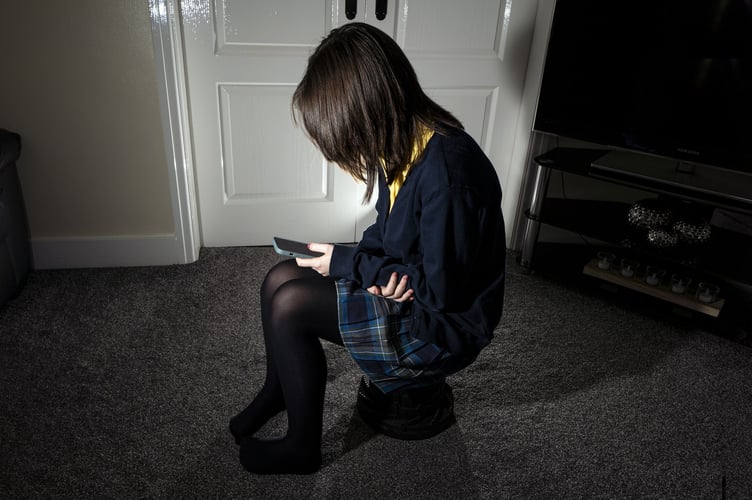In the final instalment of our Children in Crisis series, we investigate how the coronavirus pandemic has affected children's health in Waverley.
It follows articles analysing children's deteriorating education standards and increasing challenges with poverty, with the pandemic also significantly damaging young people's health across England.
Mental Health
One key area where the pandemic has substantially harmed children's wellbeing is their mental health.
Across the country, the number of children receiving mental health support has almost doubled over the last five years as 460,000 people were in contact with children and young people's mental health services in June.
NHS Digital figures show 17,355 under-18s were in contact with mental health services at two integrated care boards which serve Waverley.
This was up from 14,880 in June 2019, the latest comparable period before the pandemic, and means the number of children receiving mental health support in the area has risen by nearly a fifth in the last five years.
NHS Surrey Heartlands Integrated Care Board and NHS Frimley Integrated Care Board provide health services in the area.
The charity YoungMinds said youth mental health is a "huge problem society can no longer turn away from".
Chief executive Laura Bunt of the charity, said poverty, discrimination, insecure housing and academic pressure are all contributing to the stress young people face.
She said support must be "revolutionised", and called on the Government to introduce early support hubs across the country and have young people shape health services so care is accessible when they need it.
The Department for Health and Social Care said it will provide "specialist mental health support in every school and walk-in Young Futures hubs in every community".
Obesity Rates
Children's obesity rates across the country have also risen during the pandemic, separate NHS Digital figures show.
In 2022-23, 22.7% of Year 6 pupils were obese or severely obese – up from 21% in 2019-20, before the pandemic.
In Surrey, some 12.9% of Year 6 children were measured as obese or severely obese – though this was down from 14.2% in 2019-20, and one of the lowest rates in the country.
Just 21 of 138 areas with comparable data saw a fall in the proportion of obese or severely obese children.
Dr Mike McKean, vice president for policy at the Royal College of Paediatrics and Child Health, said overweight children – which accounts for two in five primary school leavers – have a higher risk of chronic illnesses, mental health issues, and lower life expectancy.
The Government aims to cut childhood obesity rates in half by 2030, but Dr McKean said the root cause is poverty and deprivation, which "are robbing our children of a healthy adulthood before they even start school".
The data also shows children living in the most deprived areas were more than twice as likely to be obese as those living in the most affluent.
A DHSC spokesperson said: "We face a childhood obesity crisis, which is setting up children for an unhealthy life and putting greater pressures on the NHS.
"We will tackle these issues head on, including by banning junk food adverts targeted at children."
An NHS spokesperson said Covid-19 has had a "significant impact" on children's mental health. They said the NHS provides mental health support for more children and young people than ever before, and has rolled out hundreds of mental health teams in schools.
Autism Diagnoses
Further NHS Digital figures show diagnosis services are letting down autistic children following the pandemic.
Autism is a lifelong condition which impacts how people communicate and interact with the world, but every area in England has seen an increase in the number of children waiting for a diagnosis following a referral.
Meanwhile, the proportion of children waiting at least 13 weeks, which is the recommended timeframe in which a diagnosis should be provided, has increased in all but three areas.
Across the two ICBs that serve Waverley, around 4,655 children had an open referral as of the end of June, with 88% waiting for at least 13 weeks.
This was up from 230 children waiting for an autism diagnosis in June 2019.
NHS England said it is carrying out more autism diagnoses than ever before, admitting Covid-19 has negatively impacted autistic children's mental wellbeing.
The DHSC said: "It is unacceptable that too many children and young people are not receiving the care they deserve but we are working to reform the NHS to make it fit for the future".




